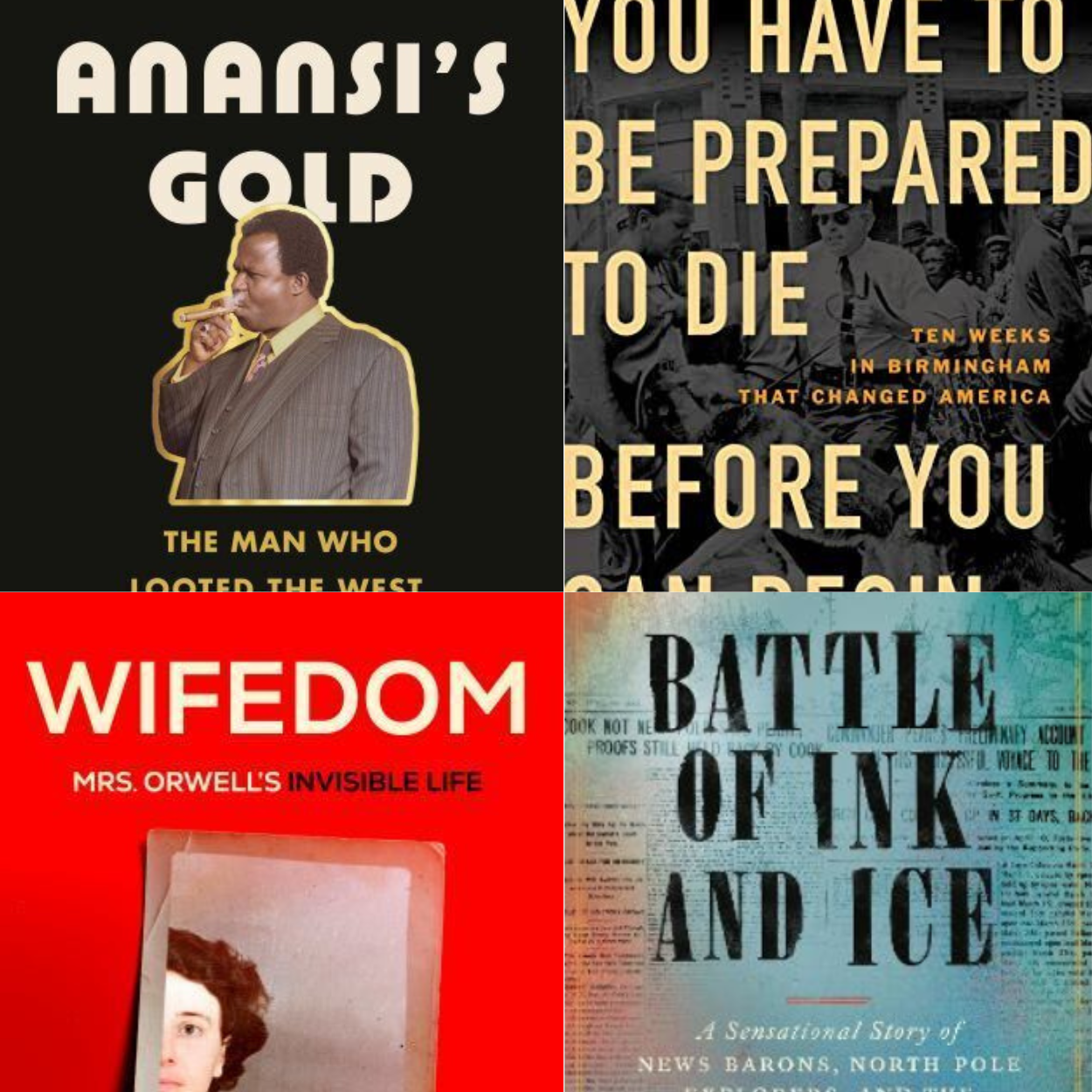That title suggests a sweeping George R.R. Martin epic, no?
Don’t let the train of sled dogs on the cover get your hopes up, though —
despite the suave jacket photo of author Hartman (who
passingly resembles shameless Indiana Jones wannabe Don Wildman, host of my
Travel Channel guilty pleasure
Mysteries at the Museum), the draw here isn’t
“adventure”
per se.
In fact, Hartman treats the turn−of−the−century race between joyless
blowhard⁄public relations nightmare Wiliam Peary and charming fraudster⁄future FDR pardonee Frederic
Cook to “discover” the geographic North
Pole, which would be the main course in any other book, as a mere side dish.
In an unforgettable scene that would have provided a more conventional yarn its climax,
Peary’s traveling companion Matthew Henson unwittingly pulls off his hapless boss’s frostbitten
toes along with his sock — unforgettable not only for Peary’s blasé
reaction, but also in the way Hartman, in kind, recounts it so offhandedly (to hilarious
effect, I have to
say).
Hartman is
far more fascinated
with intrigue — not only between Peary and Cook, but between competing newspaper owners at
the dawn of modern media, who generate even juicier displays of backstabbing, bad
behavior, and cynical one–upsmanship. With the
New York Herald’s James Bennett
representing
the
yellow
journalism of the future Fox News and the
New York Times’ Adolph Ochs the more
measured approach of, er, the future
New York Times, a theoretically apolitical endeavor
of science and
exploration in fact divides the public on party lines: grumpy New
Englander Peary with the Roosevelt Republicans, the charismatic Cook with the Jennings Bryan
populist
Democrats.
Given that neither man
actually reached the pole, it’s one more reminder
that
for
many people, emotionally based arguments, things they “feel in their gut,” trump
scientific
evidence,
recalling
The Panic Virus, Seth Mnookin's superb 2011 account of the so−called
“vaccine wars,”
which observes some invest less credibility in a nerdily off−putting scientist spouting jargon than a
photogenic celebrity espousing quackery.
Perhaps because of that, I think Hartman
might
have crafted a more compelling book by sidelining the Arctic pioneers
and focused instead on early warring media scions learning how
to manipulate their reading public for power and profit.
Still, I admit laughing out loud at his best line, which comes
at the pivotal moment when various fed−up parties demand
the Arctic rivals supply their (apparently
falsfied and⁄or non−existent)
navigational data and Peary and Cook instead sling
ad hominem mudpies at each other: “The fur gloves were off now.” Macho!
B+Grade: B+





